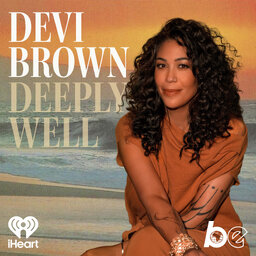Changing the Narrative with Nate Parker
American Skin, a story that takes a journey through one Black man’s grief and struggle to find justice, is out now. The film’s star, writer and director, Nate Parker is dropping gems with Devi this week about what it takes to be vulnerable as a Black man and why telling these stories is his mission.
Learn more about your ad-choices at https://www.iheartpodcastnetwork.com
 Deeply Well with Devi Brown
Deeply Well with Devi Brown


